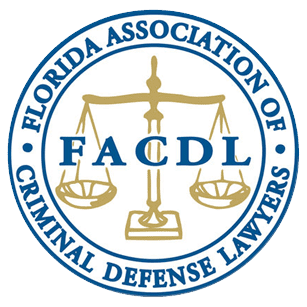Embezzlement is taken very seriously in the state of Florida. It is unique in that a certain level of trust is required for this type of theft to occur, making the financial or property loss especially bitter for victims. This crime takes many forms and can result in a range of charges, from misdemeanors to first degree felonies. If you have been charged with embezzlement, you are likely concerned about the penalties a conviction could bring. Sarasota embezzlement lawyer Erika Valcarcel understands the severe and far-reaching implications caused by this charge. With experience as both a prosecutor and a defender, she can anticipate the prosecution’s strategy in order to craft the best possible defense.
Call (941) 363-7900 today to see how your charges can be reduced or dismissed, if possible.
Florida Embezzlement Laws
The state of Florida considers embezzlement to be a type of property theft. It is defined as an individual, who was given property or funds for temporary usage or safe keeping, taking that property or money for their own personal gain. In this definition, access is critical; the accused must have access to another’s funds or property, but not legal ownership. In prosecuting an individual, the state is not required to show that the material was taken without consent, as permission to use the material is usually voluntary. The key to reaching a conviction lies in proving that the money or property was used or spent without the victim’s consent at a later date. Listed below are common examples of embezzlement:
- A banker siphoning off money from customers’ accounts into their own
- A cashier pocketing some of the money they were supposed to give back to the customer as change
- A person refusing to return a vehicle that was borrowed from a friend
- A farmer planting seeds that they were supposed to be saved for a certain customer
Penalties and Collateral Consequences
In Florida, embezzlement is punished according to the value of the stolen funds or property. Stealing between $100 and $300, $300 and $20,000, $20,000 and $100,000, and more than $100,000 will lead to the crime being filed as a first-degree misdemeanor, third-degree felony, second-degree felony, and first-degree felony, respectively. Common penalties for embezzlement include, but are not limited to:
- First Degree Misdemeanor: A fine of up to $1,000 and up to 1 year in jail
- Third Degree Felony: A fine of up to $5,000 and up to 5 years in prison
- Second Degree Felony: A fine of up to $10,000 and up to 15 years in prison
- First Degree Felony: A fine of up to $10,000 and up to 30 years in prison
A criminal conviction can bring about more than criminal penalties. Finding a job once you are released from prison, for example, might be all but impossible. Few employers jump at the chance to hire someone with a criminal record. Continuing your education might also be a challenge, as most colleges and universities vet applicants before admitting them. What’s more, most scholarships are off-limits to those with conviction histories.
Call a Sarasota Embezzlement Lawyer Today
With the help of an experienced lawyer, it may be possible to get your charges eliminated in court. One effective legal defense is professing your belief that the property or funds were actually yours. Perhaps the item was gifted to you, or maybe you believed the funds were yours for the taking. It might also be the case that the owner consented to the property being used for your own purposes. Proving your innocence with an effective defense is essential to avoiding the consequences of a conviction.
An embezzlement charge can negatively impact every aspect of your life. Your family might not be able to survive if you are sent to prison, and having a criminal record could mean the end of your professional career. Sarasota embezzlement lawyer Erika Valcarcel with Erika Valcarcel, Criminal Defense Lawyer, P.A. realizes that an embezzlement charge can shatter your life’s work. She believes the key to building an effective defense is listening to your side of the story. Once all of the details are known, your case can be presented in the best possible light.
Call (941) 363-7900 now to see how your freedom can be maintained with the help of an experienced criminal attorney in Sarasota, FL.


